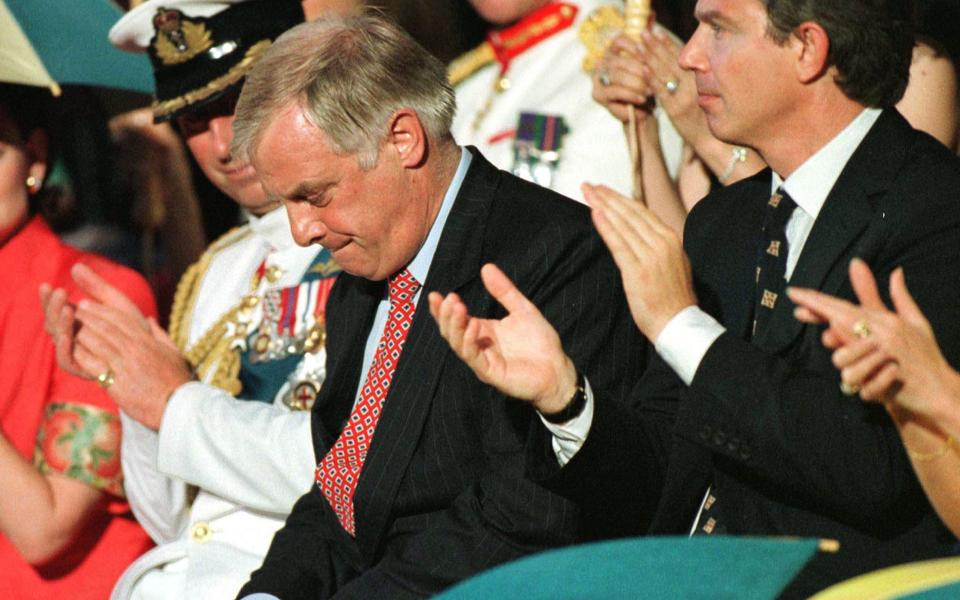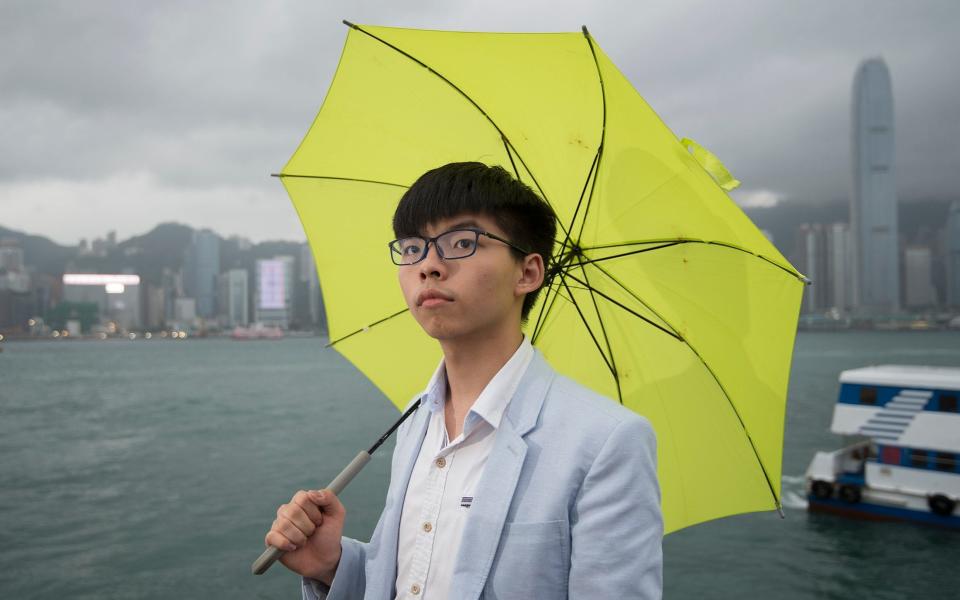Hong Kong handover anniversary: Chris Patten: 'Britain did not sell out Hong Kong - but we should have pushed China more on democracy.'

Chris Patten, the last governor of Hong Kong, said Britain did not sell out its former colony by guaranteeing a level of autonomy in the city for only 50 years - but he regretted not pushing China more on democracy.
Concerns have been raised by pro-democracy groups over what will happen after 2047, when the one country two system rule that supposedly protects rights and freedoms in the city expires.
Joshua Wong, one of the city’s best known democracy campaigners, previously told The Telegraph that Britain “should have a role to consider the future of Hong Kong after 2047”.
His political party, Demosisto, is calling for a decision on self-determination within ten years and then a referendum on the sovereignty of Hong Kong after 2047.
But Mr Patten said: “I don’t think that we sold out people in Hong Kong by not going beyond 2047. Fifty years is a long time.

“Ninety-nine years is a long time, as we discovered in 1997,” he adds, referring to the lease that Britain had obtained on much of Hong Kong in 1898.
Mr Patten was known affectionately as ‘Fat Pang’ during his five years in Hong Kong, a period which concluded with the colony being handed back to China in 1997.
Speaking to The Telegraph ahead of the 20th anniversary of the handover on July 1, Mr Patten said he did have some regrets about Britain’s handling of the handover – specifically that the city’s former colonial masters could have done more to push for democracy in the territory.
Concerns have grown in Hong Kong that Beijing has been steadily eroding freedoms that were agreed between China and Britain before 1997 with the signing of a document called the Joint Declaration.
Mass protests were held in 2014 over interference from China in the city’s chief executive elections, demonstrations which propelled Joshua Wong to international fame.
The Umbrella Movement - which was named after the umbrellas protesters held to protect themselves against tear gas that was used by police - put the debate over democracy in Hong Kong under the global spotlight.

“Where we didn’t behave very well,” Mr Patten said. “I think after the Joint Declaration was agreed, I think we should have been much more active in pushing the case for democracy, or a faster pace of democratisation in Hong Kong.”
China repeatedly says it upholds ‘one country two systems’, and Xi Jinping, the Chinese president, earlier this week triumphantly declared it the “best institutional arrangement” for Hong Kong.
Mr Patten, however, said he doubted whether Chinese officials had actually “thought through what it means”.
“I think that there is a shortage of knowledge and a paucity of imagination about that,” he added.

 Yahoo News
Yahoo News 
